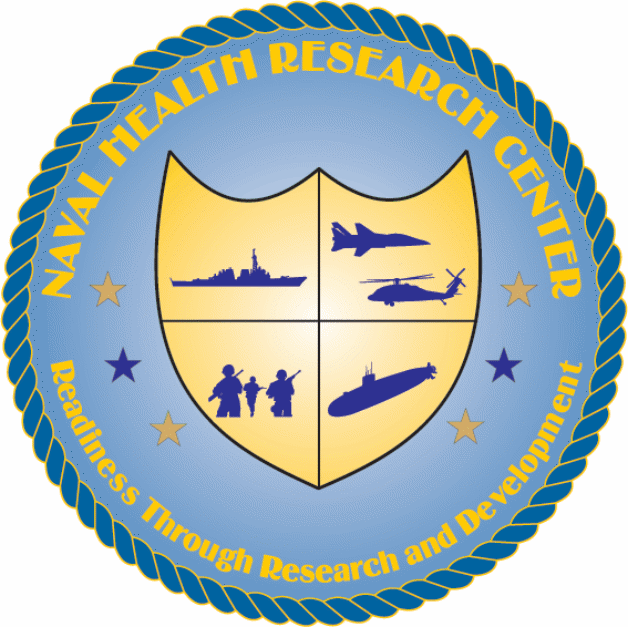Evaluation of Young Marines Drug Education Program
Evaluation of Young Marines Drug Education Program
YM_Adult Leaders survey_PRIVATE
Evaluation of Young Marines Drug Education Program
OMB: 0703-0058


Evaluation of Young Marines Drug Education Program Adult Leaders Questionnaire
This is a questionnaire about the drug education activities that your unit provides for Young Marines. This information is being gathered as part of an evaluation of the Young Marines drug education efforts to ultimately better the services for youth drug prevention.
Only one representative from each unit is being asked to complete this survey. You do not need to put your name or unit anywhere on the survey. Please remember that your information will be kept private. Your survey will only go to the researchers at the Naval Health Research Center.
Filling out this questionnaire is voluntary. You may skip any question that you do not want to answer, and you are free to stop at any time before finishing the questionnaire.

PRIVACY ACT STATEMENT
Authority. 5 U.S.C. 301
Purpose. Medical research information will be collected in an experimental research project #NHRC.2007.0029, titled “Evaluation of Young Marines Drug Education Program,” to enhance basic medical knowledge, or to develop tests, procedures, and equipment to improve the diagnosis, treatment, or prevention of illness, injury, or performance impairment.
Routine Uses. Medical research information will be used for analysis and reports by the Departments of the Navy and Defense, and other U.S. Government agencies, provided this use is compatible with the purpose for which the information was collected. Use of the information may be granted to non‑Government agencies or individuals by the Navy Surgeon General following the provisions of the Freedom of Information Act or as may be indicated in the accompanying Informed Consent Form.
Disclosure. Provision of information is voluntary. There are no penalties for not providing the requested information but failure to provide the requested information may result in failure to be accepted as a research volunteer in an experiment, or in removal from the program.
|
This study is being conducted by the Naval Health Research Center Behavioral Science and Epidemiology Program 140 Sylvester Road San Diego, CA 92106 |
Agency Disclosure Statement of Burden
"The public reporting burden for this collection of information is estimated to average 20 minutes per response, including the time for reviewing instructions, searching existing data sources, gathering and maintaining the data needed, and completing and reviewing the collection of information. Send comments regarding this burden estimate or any other aspect of this collection of information, including suggestions for reducing the burden, to the Department of Defense, Washington Headquarters Services, Executive Services Directorate, Information Management Division 1155 Defense Pentagon, Washington, DC 20301-1155 (XXXX-XXXX)[Insert OMB Control Number]. Respondents should be aware that notwithstanding any other provision of law, no person shall be subject to any penalty for failing to comply with a collection of information if it does not display a currently valid OMB control number.”
VOLUNTARY CONSENT TO PARTICIPATE IN A RESEARCH STUDY
E valuation
of Young Marines Drug Education Program
valuation
of Young Marines Drug Education Program
Adult Leaders Questionnaire
You are being asked to participate in a research study. Before you decide whether or not to participate, it is important that you read the following information and ask as many questions as necessary to be sure you understand what you will be asked to do.
* Why is this study being done?
This research is being conducted to better understand educational programs that might be effective in reducing alcohol and drug use among youth. The main goal of this survey is to gather information on the types of drug education activities that are offered to the Young Marines and how these activities are implemented in your unit. Only one respondent is needed per unit. This research is being conducted by researchers from the Naval Health Research Center (NHRC) in San Diego, California, and it is being conducted at the request of Marine Corps Community Services. One adult leader representative from all of the Young Marine units (about 325 people) will be asked to take part in this study. To participate, you may be the commanding officer of the unit, executive officer, training officer, or other leader, and you must be knowledgeable about the unit’s drug education activities.
* What will my participation involve?
This project will assess the drug education activities that your unit provides to the Young Marines. If you agree to participate, you will be asked to complete a one-time survey on a secure Internet website, using a computer to which you have personal access. The survey should take 20 minutes to complete.
* What are the risks involved in this study?
The investigators believe that the main risk or discomfort to you is the possibility of a breach of privacy of your survey data. To minimize this risk, surveys completed on the Internet are done using Secure Sockets Layer (SSL) data transmission lines. SSL encrypts, or scrambles, all the survey data sent over the Internet. The data will only be understandable when it reaches the investigator’s database. In addition, your privacy on surveys will be protected in that no personal identifiers will be collected on the survey. All information will be protected by storing all electronic data in password-protected files on secure computer servers at Naval Health Research Center. You may discontinue participation in the study at any time, either temporarily or permanently. Your survey data will not be given to the Young Marines National Headquarters or anyone else besides the NHRC investigators. The results of this study may be published in technical reports or articles, but only summary information will be presented and no individual’s identity will be revealed.
*What happens if I am injured due participating in this study?
If you are injured or become ill because of taking part in this study, contact the person in charge of this study, Suzanne Hurtado, immediately at (619) 553-7806. Medical care is not provided to you as part of this study. You should obtain your own medical care or emergency services as needed. There will be no compensation available from the study staff or the Navy. By signing this consent form, you will not be giving up any legal rights.
* What are the benefits of the study?
You are not expected to receive direct benefit from taking part in this study. However, this study could benefit children and society in general by contributing to a better understanding of how effective youth development programs are in decreasing drug use and related factors.
* What information will be collected and how will it be kept private
and secure?
What information will be collected and how will it be kept private
and secure?
This survey does not ask for any personal health information. The drug education program information that you provide will be used only by NHRC study personnel and will be maintained until all analyses are completed. All information obtained on the survey will be considered privileged and held in confidence. Your responses on surveys will be protected in that no personal identifiers will be collected on the survey. In addition, this information will be protected by storing all electronic data in password-protected files on secure computer servers at NHRC. Access to all data will be limited to staff involved in this study. Your information will not be used by or released to another institution. Suzanne Hurtado is responsible for storing your survey information during the study.
The results of this study may be published in Department of Defense technical reports, scientific journals, or presented at scientific meetings; however, no publication or presentation about the research study described above will reveal your identity. Lastly, individuals from official government agencies, such as the Department of Defense and the U.S. Navy, may inspect your research records to ensure that the rights and safety of all research participants are protected.
* Do I have to participate?
No, you do not have to participate. Participation in this study is completely voluntary. If you decide to participate, you are free to withdraw your consent and discontinue participation at any time without penalty or loss of benefits to which you are otherwise entitled.
* If you have questions about this study
If you have questions about the research, you may contact Suzanne Hurtado, at (619) 553-7806 or Suzanne.Hurtado@med.navy.mil. If you have questions regarding your rights as a human subject and participant in this study, you may contact Christopher Blood at (619) 553-8386 or NHRC-IRB@med.navy.mil. He is the Chairman of the Naval Health Research Center Institutional Review Board, a group of people who review the research to protect your rights.

CONSENT TO TAKE PART IN THIS RESEARCH STUDY
Your clicking on the “I consent” box below indicates that you have read the information in this form and have had a chance to ask any questions you have about the study and its procedures and risks. All of your questions have been answered to your satisfaction. Your clicking on the “I consent” box also indicates that you agree to be in this research study and have been told that you can change your mind and withdraw your consent to participate at any time. You authorize the use and disclosure of your survey information to the persons listed in the health information and privacy section of this consent for the purposes described above. You have been given the opportunity to print this agreement and a statement informing you about the provisions of the Privacy Act.
Please check one:

I consent to participate in this research study. (Please click on the continue button below.)

I DO NOT consent to participate in this research study. (Please click on the logout button below.)
E valuation
of Young Marines Drug Education Program
valuation
of Young Marines Drug Education Program
Adult Leaders Questionnaire
Instructions:
Please answer every question to the best of your ability (but you may skip any question that you do not want to answer).
Only select one answer for each question unless it says to mark all that apply.

GENERAL
INFORMATION
1. What division is your Unit in?
Division 2 Division 3 Division 4 Division 5 Division 6
|
2. How many Young Marines (youths) are in your unit?
(number of YM)
|
3 (number of YM)
|
4. How many adult leaders are there in your unit?
(number of adults)
|
5. How long has this unit been active?
(number of years)
|
6. As a unit representative and the respondent to this questionnaire, what primary role do you have in this unit?
Executive officer Training officer Adjutant Paymaster Other ________________
|
UNIT
ACTIVITIES INFORMATION
7. During the last 12 months, did you have D.A.R.E., DEA, or other law enforcement officers give a presentation to your Young Marines?
 Yes
Yes
No – Go to question 8.
If yes to D.A.R.E., DEA, or other law enforcement officers…
a. How many times during the last 12 months did you provide this activity? |
|
b. How many total hours were spent on this activity during the last 12 months? _______ hours |
|
c. On average, what percent of your Young Marines were in attendance at this activity during the last 12 months? |

8. During the last 12 months, did you have other guest speakers (other than law enforcement officers) give a presentation to your Young Marines?
 Yes (Continue on next page.)
Yes (Continue on next page.)
No – Go to question 9.
I f
yes to other guest speakers …
f
yes to other guest speakers …
a. How many times during the last 12 months did you provide this activity? |
|
b. How many total hours were spent on this activity during the last 12 months? _______ hours |
|
c. On average, what percent of your Young Marines were in attendance at this activity during the last 12 months? |

9. During the last 12 months, did you have an adult leader from your unit give a presentation on drug demand reduction to your Young Marines?
 Yes
Yes
No – Go to question 10.
If yes to presentation by an adult leader …
a. How many times during the last 12 months did you provide this activity? |
|
b. How many total hours were spent on this activity during the last 12 months? _______ hours |
|
c. On average, what percent of your Young Marines were in attendance at this activity during the last 12 months? |

10. During the last 12 months, was any unit drug demand reduction-related training conducted by Young Marine youths themselves?
 Yes
Yes
No – Go to question 11.
If yes to training conducted by Young Marine youths …
a. How many times during the last 12 months did you provide/assign this activity? |
|
b. How many total hours were spent on this activity during the last 12 months? _______ hours |
|
c. On average, what percent of your Young Marines were in attendance at this activity during the last 12 months? |

11. During the last 12 months, did your Young Marines complete a research project and/or written report on tobacco, alcohol, or drugs as a part of drug demand reduction-related training?
 Yes
Yes
No – Go to question 12.
If yes to completing research project and/or report …
a. How many times during the last 12 months did you provide/assign this activity? |
|
b. How many total hours (per individual) were spent on this activity during the last 12 months? _______ hours |
|
c. On average, what percent of your Young Marines completed this activity during the last 12 months? |

12. During the last 12 months, did you conduct role-playing or skits to help your Young Marines practice drug resistance skills, resist peer pressure, improve self-confidence, or for similar purposes?
 Yes (Continue on next page.)
Yes (Continue on next page.)
No – Go to question 13.
If yes to role-playing or skits …
a |
|
b. How many total hours were spent on this activity during the last 12 months? _______ hours |
|
c. On average, what percent of your Young Marines were in attendance at this activity during the last 12 months? |

13. During the last 12 months, did you show any videos or movies with drug prevention messages?
 Yes
Yes
No – Go to question 14.
If yes to videos or movies …
a. How many times during the last 12 months did you provide this activity? |
|
b. How many total hours were spent on this activity during the last 12 months? _______ hours |
|
c. On average, what percent of your Young Marines were in attendance at this activity during the last 12 months? |

14. During the last 12 months, did your unit provide any booklets, brochures, or other literature with drug prevention messages as a part of drug demand reduction-related training?
 Yes
Yes
No – Go to question 15.
If yes to booklets, brochures, or other literature …
a. How many times during the last 12 months did you provide this activity? |
|
b. How many total hours were spent on this activity during the last 12 months? _______ hours |
|
c. On average, what percent of your Young Marines were in attendance at this activity during the last 12 months? |

15. During the last 12 months, did your unit participate in any activities for Red Ribbon Week?
 Yes
Yes
No – Go to question 16.
If yes to activities for Red Ribbon Week …
a. How many activities did your unit participate in related to Red Ribbon Week? |
|
b. How many total hours were spent on these activities during the last 12 months? _______ hours |
|
c. On average, what percent of your Young Marines were in attendance at these activities during the last 12 months? |

16. During the last 12 months, were any unit drug demand reduction-related educational classes taken in an outside class or symposium?
 Yes
Yes
No – Go to question 17.
If yes to classes taken in an outside class or symposium …
a. How many times during the last 12 months did you provide this activity? |
|
b. How many total hours were spent on this activity during the last 12 months? _______ hours |
|
c. On average, what percent of your Young Marines were in attendance at this activity during the last 12 months? |
17. During the last 12 months, did your unit participate in any drug demand reduction-related field trips (such as local jails, courthouses, morgues, drug rehabilitation centers, etc.)?

 Yes
Yes
No – Go to question 18.
If yes to drug demand reduction-related field trips …
a. How many times during the last 12 months did you provide this activity? |
|
b. How many total hours were spent on this activity during the last 12 months? _______ hours |
|
c. On average, what percent of your Young Marines were in attendance at this activity during the last 12 months? |

18. During the last 12 months did your unit use drug demand reduction articles in the Young Marines Esprit Magazine as a lesson focus?
 Yes
Yes
No – Go to question 19.
If yes to drug demand reduction articles …
a. How many times during the last 12 months did you provide this activity? |
|
b. How many total hours were spent on this activity during the last 12 months? _______ hours |
|
c. On average, what percent of your Young Marines were in attendance at this activity during the last 12 months? |

19. During the last 12 months, did you provide any parent training on drug demand reduction?
 Yes
Yes
No – Go to question 20.
If yes to parent training …
a. How many times during the last 12 months did you provide this activity? |
|
b. How many total hours were spent on this activity during the last 12 months? _______ hours |
|
c. On average, what percent of your Young Marines’ parents were in attendance at this activity during the last 12 months? |

20. In the last 12 months, did your unit provide any other activities that fulfill the drug demand reduction educational requirements?
 Yes. If yes, please describe:
__________________________________________
Yes. If yes, please describe:
__________________________________________
No – Go to question 21.
If yes to other activities…
a. How many times during the last 12 months did you provide this activity? |
|
b. How many total hours were spent on this activity during the last 12 months? _______ hours |
|
c. On average, what percent of your Young Marines were in attendance at this activity during the last 12 months? |

21. If your unit has not been able to provide the required three hours of drug demand reduction educational activities each quarter this year, what are the main reasons why? (Mark all that apply)
|
|
|
_______________________________________________ |
|
|
|
|
2 2.
Please write additional comments on the drug demand reduction
activities you provide for your Young Marines.
2.
Please write additional comments on the drug demand reduction
activities you provide for your Young Marines.
____________________________________________________________________________________________________________________________________________________________________________________________________________________________________________________________________________________________________________
____________________________________________________________________________________________________________________________________________________________________________________________________________________________________________________________________________________________________________
| File Type | application/msword |
| Author | Jenny.Crain |
| Last Modified By | Jenny.Crain |
| File Modified | 2008-07-31 |
| File Created | 2008-07-31 |
© 2026 OMB.report | Privacy Policy





 Less than one year
Less than one year